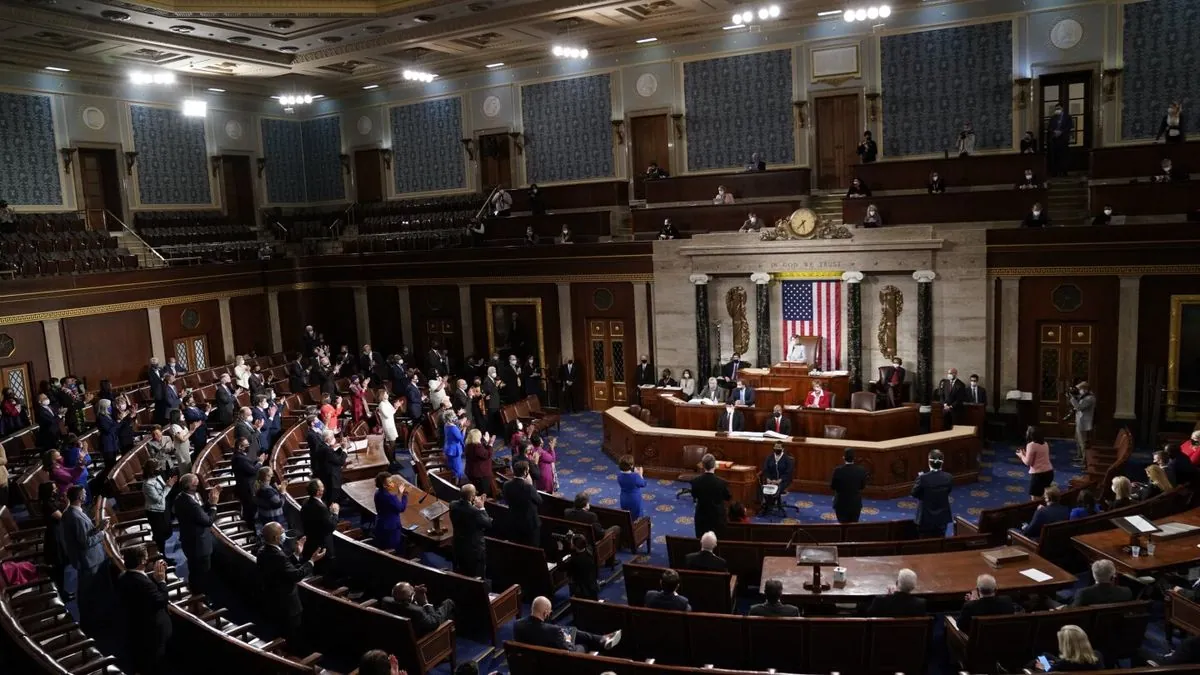House Set to Pass Stopgap Bill, Averting Shutdown and Boosting Secret Service
U.S. House poised to approve temporary funding measure, preventing government shutdown and allocating $231 million to Secret Service. Speaker Mike Johnson seeks Democratic support amid Republican divisions.

The U.S. House of Representatives is on the verge of approving a stopgap spending bill, aiming to prevent a government shutdown and provide additional funding for the Secret Service. This development comes as the September 30, 2024 deadline for current funding approaches, highlighting the ongoing challenges in the federal budgeting process.
Speaker Mike Johnson is expected to rely on Democratic support to pass the legislation, which extends federal funding until December 20, 2024. This move underscores the complex dynamics within the House, where the 435 voting members often find themselves divided along party lines. The bill also includes a $231 million allocation for the Secret Service, an agency established in 1865 to combat currency counterfeiting and now responsible for protecting high-profile individuals.
The Senate, comprising 100 members with two from each state, is anticipated to pass the bill with bipartisan support. This cooperation between the two chambers is crucial, as the U.S. Constitution vests the "power of the purse" in Congress, making it responsible for federal spending decisions.

The current situation reflects the broader challenges in the U.S. budgeting process. The federal government's fiscal year begins on October 1, and the annual budget typically exceeds $4 trillion. However, Congress often relies on continuing resolutions (CRs) as temporary funding measures when unable to pass regular appropriations bills on time.
Johnson faces opposition from within his own party, with many Republicans preferring to pass the 12 annual spending bills separately. This internal discord echoes past conflicts, such as the ousting of former Speaker Kevin McCarthy in 2023 over a similar funding issue. The U.S. has experienced 21 government shutdowns since 1976, with the longest lasting 35 days in 2018-2019, highlighting the recurring nature of these budgetary impasses.
"It would be political malpractice to shut the government down. I think everyone understands that."
The Speaker's decision to work with Democrats on this short-term solution sets the stage for further negotiations in the coming months. Congress will be out of session for much of October and November, leaving limited time to address long-term funding issues before the new December 20 deadline.
Looking ahead, lawmakers must grapple with significant challenges in the budgeting process. The U.S. national debt exceeded $30 trillion for the first time in 2022, adding urgency to discussions about fiscal responsibility. The Congressional Budget Office provides nonpartisan analysis to inform these debates, while the Government Accountability Office audits federal spending to ensure proper use of taxpayer funds.
The potential for an omnibus spending bill in December looms large, as these massive legislative packages can run thousands of pages long. Such bills often become contentious due to their size and the diverse array of funding provisions they contain.
As the House prepares to vote, the outcome will not only determine immediate government operations but also set the tone for future budget negotiations. With the 2025 fiscal year on the horizon and ongoing debates about spending levels, the coming months promise to be a critical period for U.S. fiscal policy.


































